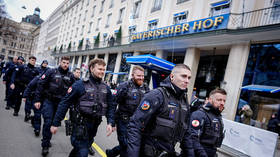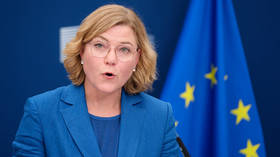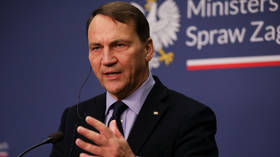Ukraine affair displays ‘absolute disconnect in US foreign policy’
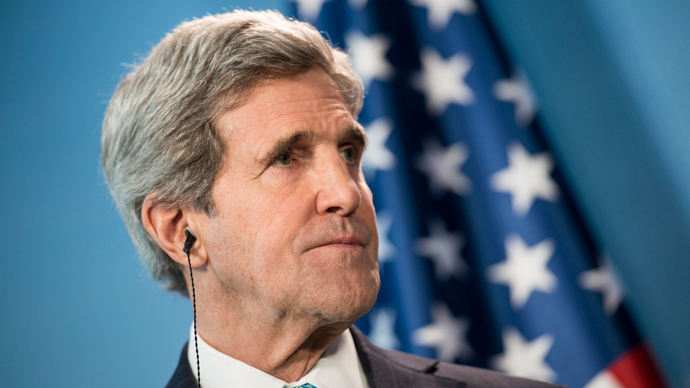
Ukraine unrest has a serious geopolitical dimension rooted in the EU Association Agreement, which stipulates Kiev’s collaboration with NATO, exec director of the Ron Paul Institute Daniel McAdams told RT, noting inconsistency in US official statements.
RT:Why would the likes of John Kerry and indeed top diplomats from the EU be interested in talking to the Ukraine opposition leaders in Munich? What’s in it for them? Why is Ukraine of such importance?
Daniel McAdams: What is interesting is that after the
meeting between opposition leader Vitaly Klitschko and John
Kerry, the Ukrainian opposition leaders said that Kerry told
them: “We are with the opposition, we give them our full
support.”
Kerry also said that President Yanukovich has not done enough in
his reforms. And the US has even called for a change in the
constitution of Ukraine. But at the same time he warned against
meddling by outside powers in Ukraine’s internal affairs. So
there is an absolute disconnect in US foreign policy, and I think
anyone who is paying attention notices it.
RT:There is a disconnect amongst the opposition
there too, isn’t it? Because John Kerry is talking with the
opposition, but does he know who they are?
DM: And by what rights does he have any authority to
undermine the legitimately elected government and tell the
president of this country, what he should or should not do?
You know that is really funny, because the US State Department
released something yesterday, saying Ukraine should move more
towards a more parliamentary system instead of the strong
presidential system.
And this is the same week that President Obama in the State of
the Union address said: “Well, if congress does not go along with
these laws that I plan on pass, I’m going to start ruling by the
executive order.” So it is quite ironic.
RT:But is there a united opposition? There is John
Kerry saying that he will support it, if Yanukovich does perhaps
go in the long term, is there a credible opposition to replace
him?
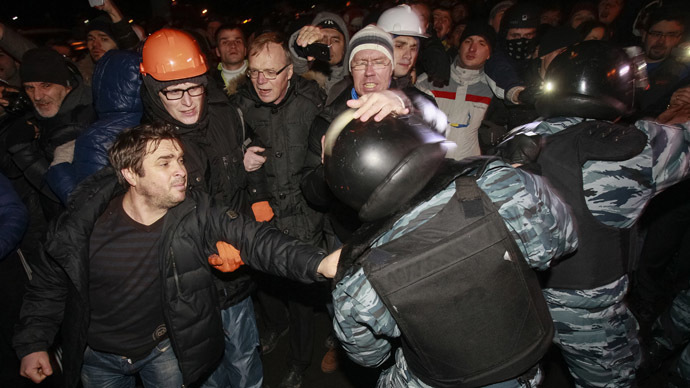
DM: You see, there is a debate as to whether the
people on the streets are being control by the opposition or are
they out of control of the opposition. There is the information
that I’m sure you have reported on already that some of the
computers seized from some of the opposition parties indicate
that this has been planned for quite some time, including the
violent component of the protests.
So the question is, do the people on the streets follow the
opposition? We know people like Klitschko who meets Kerry says
one thing and then talks to the supporters on the street, and
speaks in a whole different language, a very violent language.
And of course as your viewers know, there are many people in the
opposition who are extraordinary unsavory in their views. And
these are the people that John McCain for example sat down and
had dinner with when he was there in December, these are
neo-Nazis.
Interestingly enough John McCain has made a surprise visit to
Budapest today. One can only wonder what he is discussing with
the Hungarian government. As we know, there is a large Hungarian
minority in parts of Ukraine.
RT:And why are they discussing Ukraine? It seems to
be high on the agenda. There is a security meeting in Munich,
when there are obviously other global issues which could perhaps
be far more important, the likes of Syria?
DM: Well I think what many people don’t understand is
that the EU Association Agreement with Ukraine did contain a
security component that required Ukraine into cooperate with NATO
forces. There is reason enough to be concerned with NATO troops
facing Russian troops just across the border. So it is an issue
of enormous importance. It is a geostrategic issue for the United
States and its becoming a very serious issue.
The statements, views and opinions expressed in this column are solely those of the author and do not necessarily represent those of RT.


